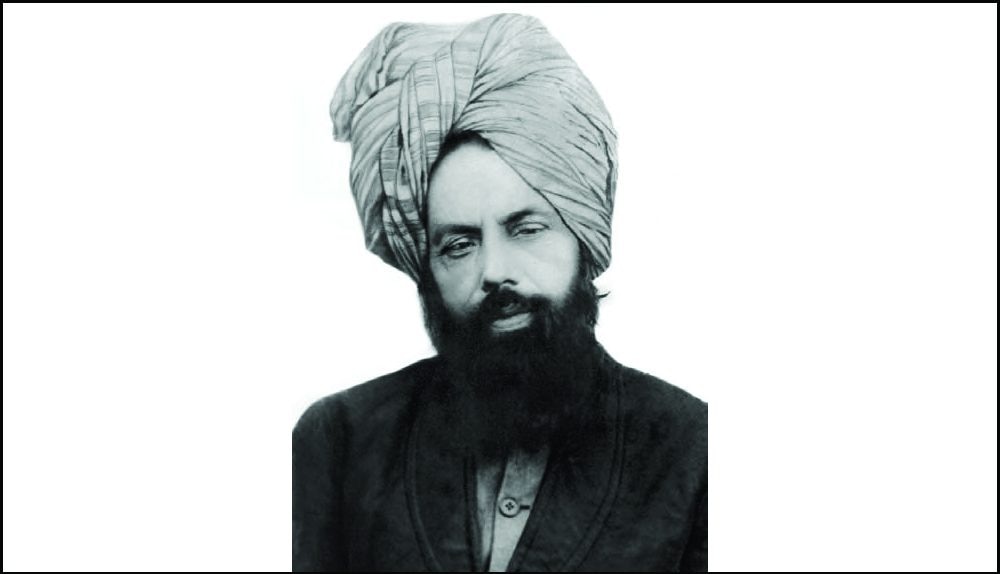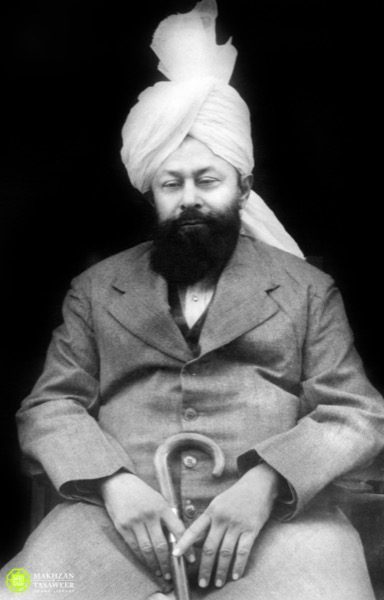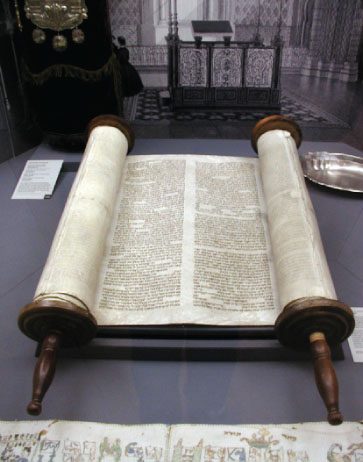
Bear in mind that people are seriously mistaken in the definition of words. At times, words are used in their apparent sense, and sometimes they are used as metaphors. For example, the Holy Prophet, peace and blessings of Allah be upon him, said that the first of his wives that would die after him would be the one with the longest hands. All of the wives of the Holy Prophet, peace and blessings of Allah be upon him, even began to measure their hands in front of him, and he did not forbid them from doing so either. However, when his wife Zainab, may Allah be pleased with her, passed away first, the actual purport of this statement became clear in that ‘the one with the longest hands’ referred to that wife who was the most generous. In the same way, there are verses in the word of Allah Almighty which, if interpreted in the apparent sense, would mean nothing. For example, the Holy Qur’an states:
مَن كَانَ فِي هَٰذِهِۦٓ أَعۡمَىٰ فَهُوَ فِي ٱلۡأٓخِرَةِ أَعۡمَىٰ
‘Whoso is blind in this world will be blind in the Hereafter.’ [1]
Now in your personal capacity, you ought to ask Hafiz Abdul-Mannan, from Wazirabad, who is an extreme enemy of my community, does this verse mean that a person who is blind in this world, will be raised in the next life as a blind person? Or is it the case that this verse cannot be understood literally and implies some other meaning? Surely, he will have to say that undoubtedly, this does not mean that a blind person or one who is unable to see shall be raised on the Day of Resurrection blind and deprived of sight; he will have to say that this implies a blindness of divine cognisance and insight.
When it is proven, then, that words can be used in the metaphoric sense, especially in prophecies, then how is it wise to interpret the words used in prophecies relating to the descent of Jesus (as) in the apparent sense? Those who oppose me are literalists and engage in conjecture. However, bear in mind that Allah Almighty states:
إِنَّ ٱلظَّنَّ لَا يُغۡنِي مِنَ ٱلۡحَقِّ شَيۡـٔٗا
‘Surely, conjecture avails nothing against truth.’ [2]
Moreover, He also states:
إِنَّ بَعۡضَ ٱلظَّنِّ إِثۡمٞ
‘For suspicion in some cases is a sin.’ [3]
Therefore, if people were to think ill and insist on taking the verse quoted earlier in the apparent sense, then this would mean that the blind would be denied salvation. I cannot understand why these people unjustly insist on something for which they have no conclusive proof. These people are completely uninformed of the sort of language that is used in the books of God Almighty, for if they were informed, they would know how prophecies often make use of metaphors. When the Holy Prophet, peace and blessings of Allah be upon him, saw that he was wearing golden bangles, this was symbolic of false prophets. Then, when he was shown cows being slaughtered, this meant that certain companions would be martyred. This is nothing peculiar because generally this is how divine law operates in connection with dreams and prophecies. Take the dream of Joseph (as) which is recorded in the Holy Qur’an. Did this actually refer to the physical sun, moon and stars? Or let us take the dream of the King of Egypt in which he was shown cows. Did this imply actual cows or something else? These examples are not few and far between, rather such testimonies range in the thousands, but it is astonishing that when the matter relating to the descent of Jesus (as) is in question, the people forget these examples and begin to stress the apparent sense of the words. In matters such as these, disagreement is rooted in two things and that is to either disregard a symbol or metaphor and cling to an apparent meaning, or to adopt a metaphoric sense where an apparent meaning is evident. If one were to suggest that prophecies do not contain metaphors and symbols, then it would be difficult to establish the prophethood of any prophet.
Hazrat Mirza Ghulam Ahmad (as), Malfuzat – Vol. III (Tilford, Surrey: Islam International Publications Ltd., 2021), 274-276.
ENDNOTES
- The Holy Qur’an, 17:73
- The Holy Qur’an, 53:29
- The Holy Qur’an, 49:13




Add Comment